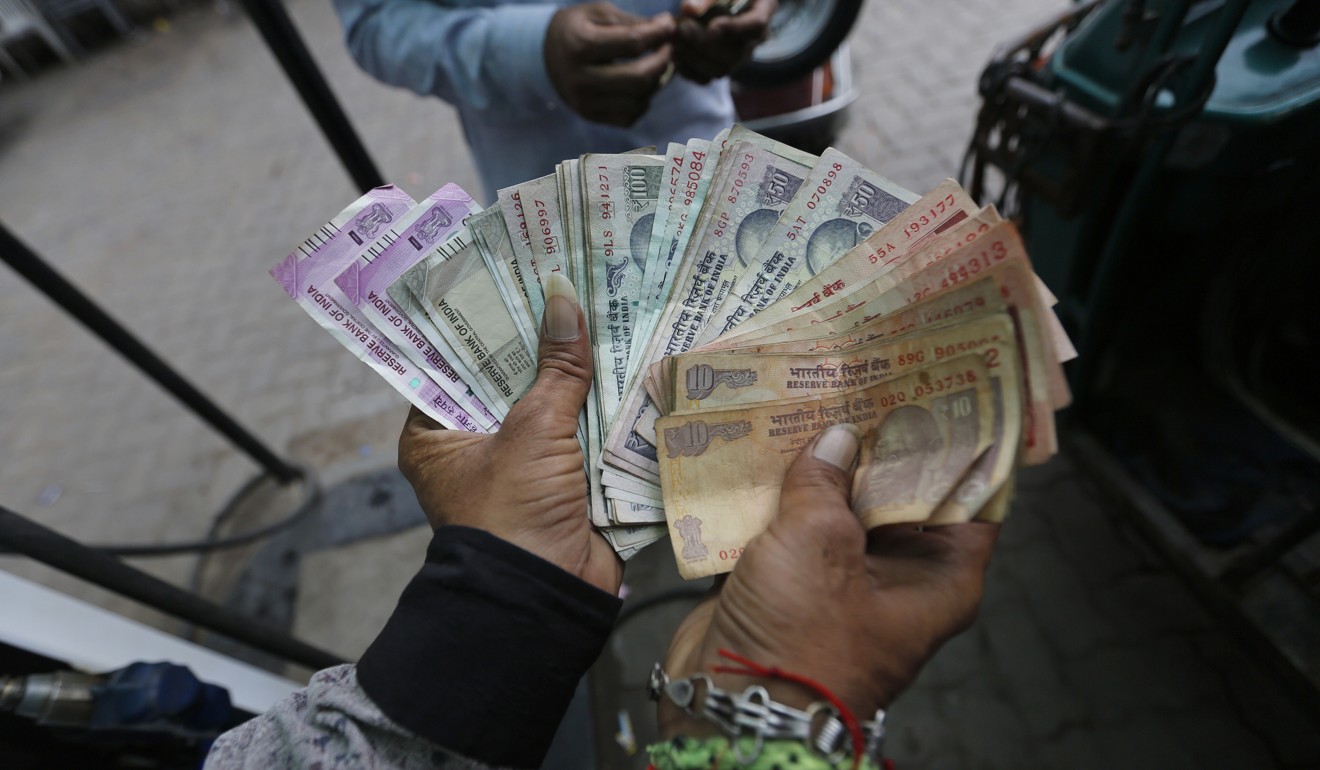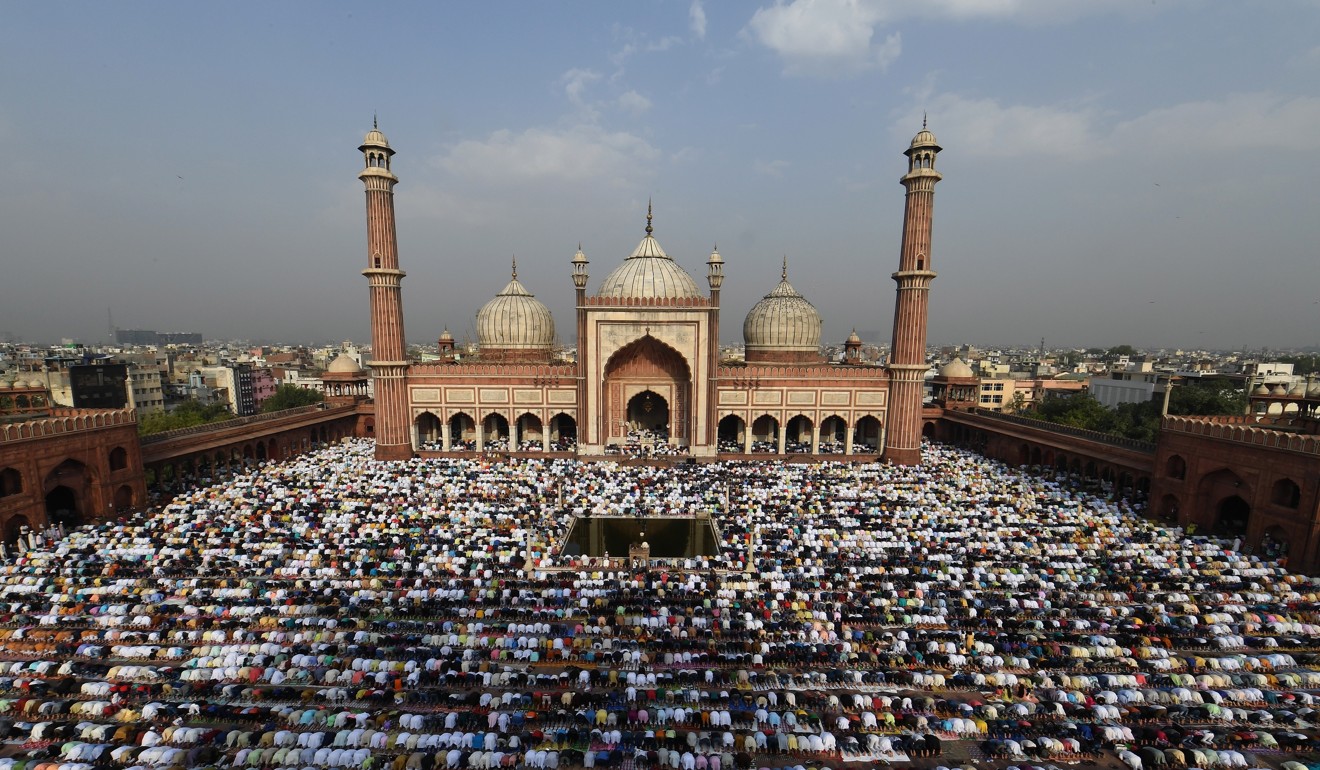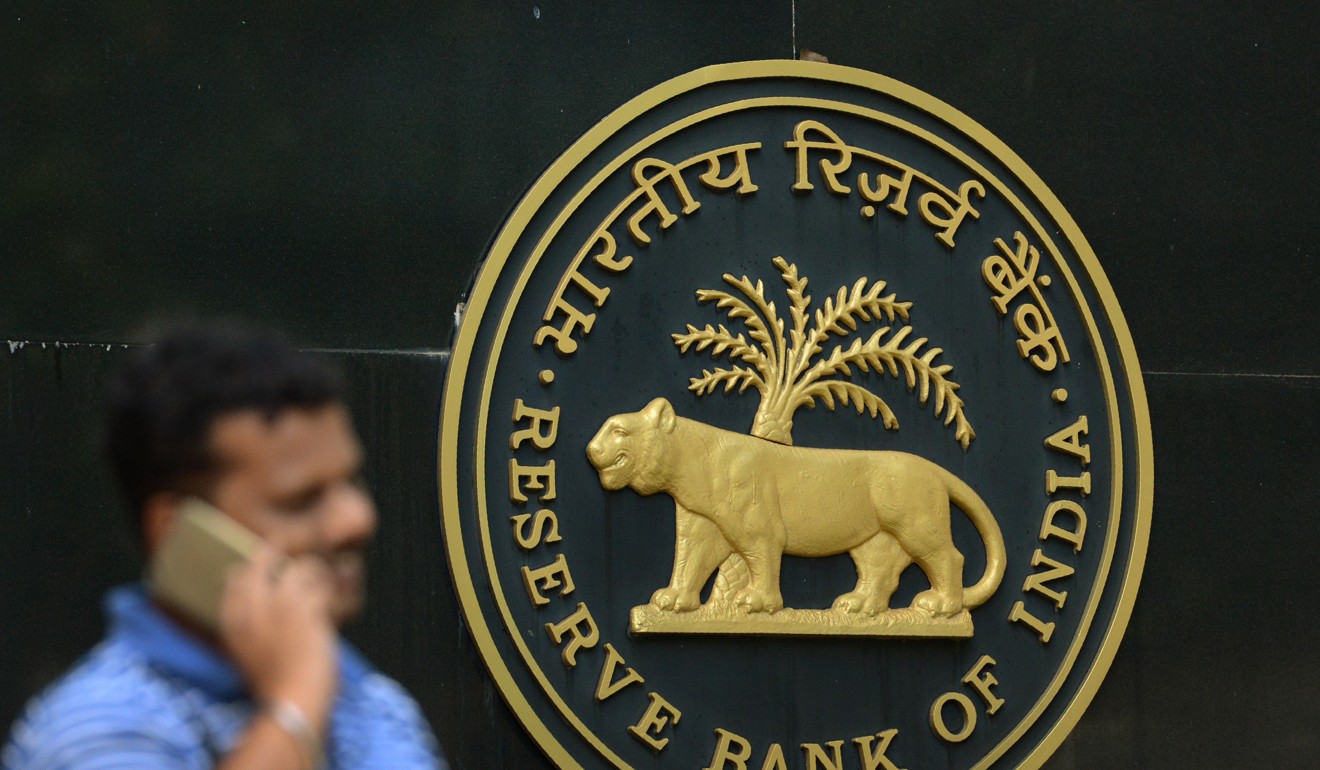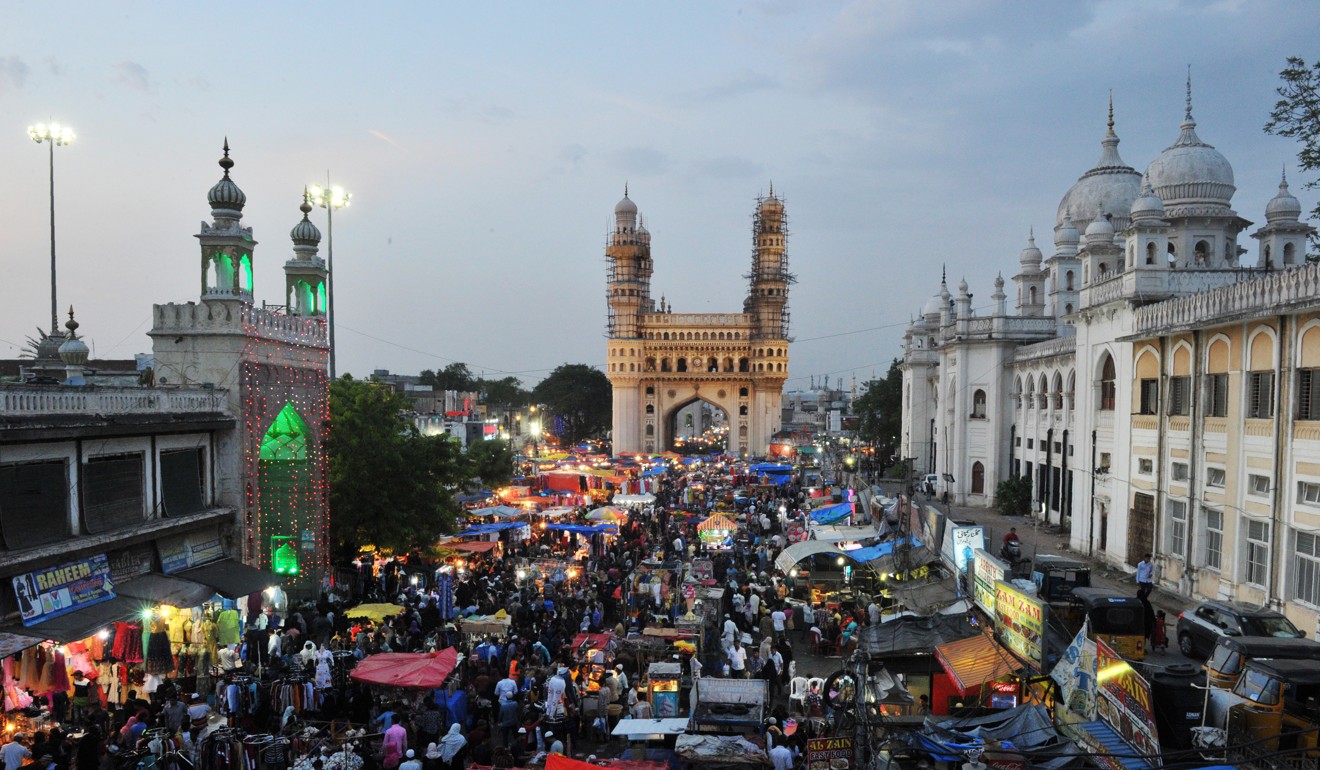
Gold, jewels, ‘Islamic’ finance: how India’s I Monetary Advisory built a US$365 million Ponzi scheme
- Some 50,000 investors have lodged complaints against the Bangalore-based I Monetary Advisory and its founder Mohammed Mansoor Khan
- India’s refusal to pass laws regulating Islamic finance means there is an unmet demand ripe for exploitation by unscrupulous actors

A multimillion-dollar scandal under the veil of Islamic banking is unfolding in Bangalore, the tech capital of India. With the alleged involvement of high-profile lawmakers, businessmen and bureaucrats, the scale of the Ponzi scam keeps expanding as more arrests take place.
About 50,000 aggrieved investors, mostly Muslims, have so far lodged complaints against the Bangalore-based I Monetary Advisory (IMA) group of companies and its founder, jeweller Mohammed Mansoor Khan, claiming they siphoned off money to the tune of 25 billion rupees (US$365 million).
Some estimates suggest the true figure is much higher. According to local media, people from Hyderabad, New Delhi and Tamil Nadu have invested in the company.
The Karnataka state government has formed a special investigation unit to handle the snowballing scandal, and more than a dozen perpetrators – including two senior government officials – had been arrested as of July 9.
IMA, which began as a halal investment scheme promising lucrative returns in 2006, began expanding rapidly in 2013 through a series of marketing campaigns aimed at the Muslim community in the southern Indian state of Karnataka.
Shareholders could invest in multiples of 50,000 rupees (US$730), a relatively large figure for the middle-class investors being targeted. Less affluent Muslim labourers and daily-wage workers formed small groups to invest, as they could not afford to individually.
The scheme’s promise of attractive returns – up to 30 per cent annually – intertwined with its religious slant proved successful in luring investors. “Most banks give you around 8 per cent annual interest. But, here, I get 3-4 per cent every month. And it’s Islamic. Why wouldn’t I choose this over others?” said a Muslim investor, 35, who said he had put in 150,000 rupees and received an equivalent amount in returns over less than two years – but his principal remains with the IMA.

Investigators probing the case say IMA’s financial records reek of impropriety. The company pledged monthly dividends of 3-5 per cent to shareholders by making investments in gold and diamond jewellery. As Islamic finance prohibits the payment of interest on loans, IMA said it would share only its profits.
With the jewellery business as its backbone, IMA quickly entered other money-generating sectors such as real estate, pharmacy, health care, education, gold bullion trading and publishing.
RELIGIOUS APPEAL
Capitalising on his staff’s crisp skullcaps and neatly trimmed beards, founder Khan, who is in his late 40s, took pains to overtly push IMA’s Islamic credentials wherever possible.
Khan befriended Muslim politicians of all parties and lined up prominent ulema – Islamic religious scholars with little financial knowledge – for patronage and legitimacy in the eyes of ordinary Muslims. At least six top ulema based in Bangalore endorsed Khan’s businesses as Islamic, providing a veneer of religious justification, the police said. All of them are now distancing themselves from Khan and IMA.
Commodity trading is merely gambling and there’s nothing Islamic about it
Syed Anjum, a senior executive with a well-known brokerage firm who was aware of Khan’s ascent from 2006, said the IMA founder was heavily engaged in commodity trading, not just the jewellery business.
“Commodity trading is merely gambling and there’s nothing Islamic about it,” said Anjum, who labelled Khan the “Vijay Mallya” of Islamic banking, referring to the flamboyant Indian liquor baron who is currently in Britain fighting extradition. Mallya is accused of borrowing from private and state banks to rescue his ailing Kingfisher airline, and then fleeing the country without repaying the money.
“We demand federal investigation agencies take charge immediately because the state-controlled law enforcement agencies should not probe this case, [as] powerful state-level politicians are deeply involved in the scam,” said a 32-year-old complainant, who did not wish to be identified.

Senior state-level politicians like B.Z. Zameer Ahmed Khan and Roshan Baig are being questioned by law enforcement agencies over their alleged roles in the scam.
Ponzi schemes exploiting the financial illiteracy of the impoverished have a history in India. In 2013, over 1.5 million investors in West Bengal and neighbouring states in the country’s east were defrauded of up to US$6 billion through illegal money-pooling schemes in the Saradha Group chit-fund scam.
The Saradha Group was a collective of 200 companies set up to lure small investors with a promise of high returns, with the middlemen who brought in these investors receiving commissions as high as 25 per cent.
Trouble started brewing at IMA in early 2017 when the tax authorities raided its offices to investigate suspected wrongdoings such as non-compliance of tax regulations. Things began to get out of hand last November when multiple central law-enforcement bodies initiated a full-fledged probe into IMA’s dealings and properties.
The scam unravelled in March when IMA started defaulting on payments, probably for the first time in 13 years, triggering a flood of complaints against the group and its founder.
Khan fled India to an undisclosed location, after which his passport was suspended. In an audio clip released on June 23, Khan threatened to end his life as he had grown “tired of bribing corrupt politicians and bureaucrats”. He expressed a willingness to return to India if his safety was guaranteed.
“At this point, I can only say that we will follow the provisions of the law. When I say provisions of the law, it implies both giving protection to his life as well as taking action for the crime he has committed,” Bangalore police commissioner Alok Kumar told Indian daily The Economic Times.

LACK OF REGULATION
Experts say the total absence of laws to regulate Islamic finance often leads to such Ponzi schemes. “If a country doesn’t allow a [globally accepted] product or kind of business [such as Islamic banking] to operate legally, that sentiment will be exploited by unscrupulous elements, like in IMA’s case,” said Dr Shariq Nisar, founder of the sharia-related finance advisory firm Taqwaa Advisory and Shariah Investment Solutions.
“It’s always the duty of the regulator and it cannot escape from its own responsibility,” he said, adding that just because the victims belonged to a particular religion or minority, they didn’t become less of a target for exploitation or a group the regulator could ignore.
Successive Indian governments and the central bank have long toyed with the idea of interest-free banking, but with no concrete outcome.
In 2017, the Reserve Bank of India said it had decided not to pursue a proposal to introduce Islamic banking. It said the decision was taken after considering “the wider and equal opportunities” available to all citizens to access banking and financial services.
The government has been discouraging the idea of Islamic banking, arguing that the various arms of the country’s existing financial institutions are sufficient to meet the needs of 172 million Indian Muslims. The central bank also remains reluctant to modify its current laws, which would be needed before Islamic banking could be introduced.

Nonetheless, with a staunch Hindu nationalist administration in power, which is often perceived as unsympathetic towards Muslims’ affairs, and a state-controlled central bank, the idea of Islamic finance is unlikely to take off in the foreseeable future. Also, the fear that Islamic banking could be used to channel funds for terror-related activities remains an obstacle to overcome.
Abdur Raqeeb, general secretary of the Indian Centre for Islamic Finance, said Islamic banking was an interest-free, risk-sharing and equity-based system that should be devoid of speculative practices.
“We’ve been pressing the [Reserve Bank of India] and the finance ministry to at least open up to the idea of interest-free windows in the banking system,” Raqeeb said. “IMA is a textbook Ponzi scheme. We’ve been telling the government that if you’re not going to regulate, these are the kind of people who will take advantage.”
Large-scale financial fraud stemming from Islamic banking is not unique to India. K.A. Najmi, an expert on banking and finance who has worked with the Indian central bank in various capacities for 20 years, said there had been IMA-like scandals in Arab countries as well. He said some Ponzi schemes which had bankrupted financial institutions in Gulf states were peddled by Indian expats living there.
But for now, tens of thousands of duped Indians have to live with the feeling that they have lost their money. “Strict action has to be taken. People are crying. They’d invested their hard-earned money and nobody is taking action against [the perpetrators]. Kindly help,” wrote a victim on IMA’s Facebook page. ■